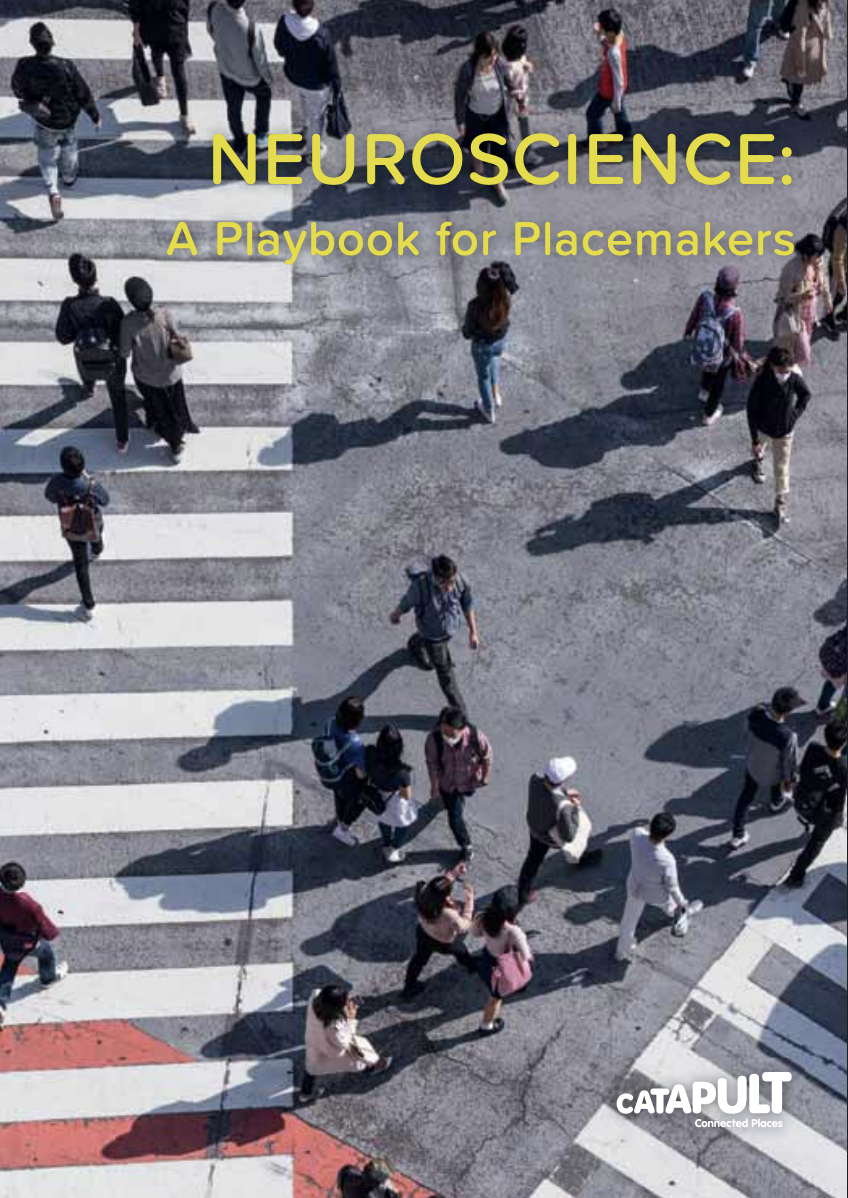A Playbook for Neuroscience in Cities
A first of its kind, this project produces a playbook called ‘Neuroscience for Cities’ a close collaboration between Future Cities Catapult, Centric Lab and University College London.
It brings forward a framework of how neuroscience research can be put into practice in cities. This has been presented as a set of new tools, methodologies and strategies for organisations big and small, to adopt neuroscience insights into their supply chain.
With an aim to reach out to a wide audience from businesses, to urban planners, to academicians and policy makers we hope this is found as a useful resource to explore the potential applications of this important area of research.
Developments in neuroscience are showing us new ways to understand how people experience the built environment, revealing new opportunities for innovation and improved experiences, leading in turn to greater productivity, wellbeing and attraction. Neuroscientists are also discovering important insights about outcomes for the less advantaged in our cities, providing compelling evidence in support of interventions to tackle the negative health impacts of city living, and ways to reduce barriers to access and opportunity.
We are now on the cusp of a revolution in how metrics from neuroscience inform urban innovation strategies and increase the quality of life of the cities inhabitants.
Download the Playbook
“a 126-page guide which positions itself as a way of bringing together the worlds of science and those creating and shaping buildings and cities.”
“A significant piece of work that could (and should) inform your thinking.”
“As someone who’s spent years pouring over the literature on neuroscience and urban design, I can’t tell you how helpful of a resource the Neuroscience for Cities Playbook is. Accessible, comprehensive and practical.”
“A very engaging read. Such an impressive collaboration surely makes for very exciting times for Planners, Designers and implementers across the sector it would seem.”

